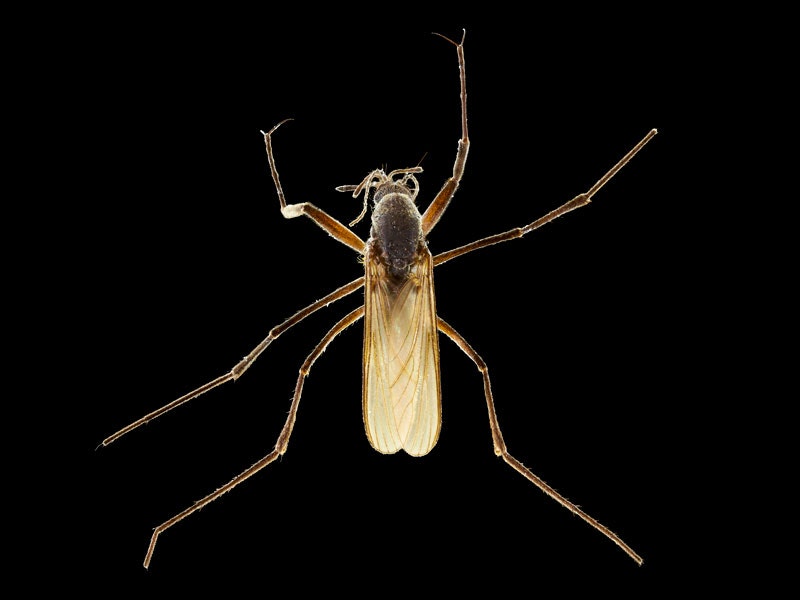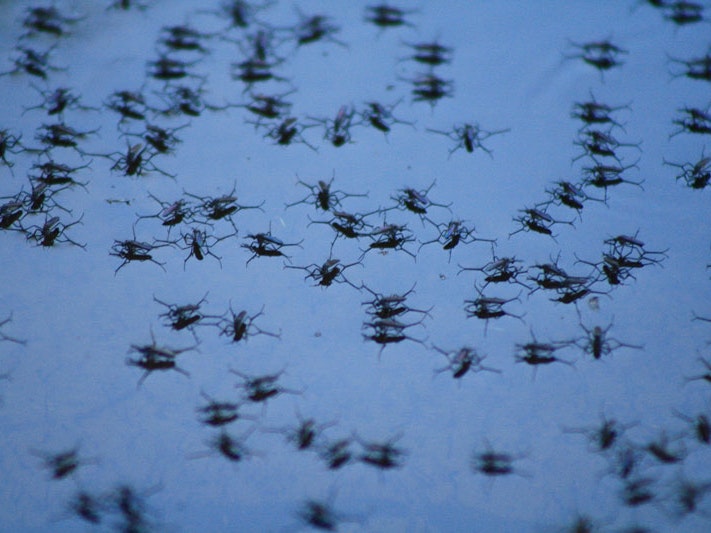
New Zealand Mosquito Census
We need your help tracking New Zealand’s native and introduced mosquito species so we can get a better understanding of which species live where and how they’re spreading. Simply catch it, freeze it, and send it!
Free museum entry for New Zealanders and people living in New Zealand
Open every day 10am-6pm
(except Christmas Day)
Free museum entry for New Zealanders and people living in New Zealand
Bug expert Julia Kasper gives some tips on how you can discourage mosquitoes from biting you and breeding near your home.
Temperature and rainfall are the main factors that determine when mosquitoes become active and start biting, we can discourage them from breeding and being active close to our homes by eliminating standing water in backyards, around houses, in gutters, and ditches.
If you want to keep some shallow standing water, such as in a lily-pond or bird-bath, you can use mosquito control methods such as dunks to prevent mosquito larvae from surviving.
Saltpool Mosquitoes Opifex fuscus, 2016. Photo by memopob via iNaturalist NZ. CC BY-NC 4.0
The start of mosquito season is the time to begin control methods such as traps or sprays, to make sure window and door screens are secure, or to begin wearing long light coloured clothing (mozzies like dark colours). Make sure you use repellents for camping or other outdoor activities, especially at dawn and dusk.
Mosquitoes like it cool, moist, and shady. Only a few species are active in the middle of the day.
Mozzies find us mainly by olfactoric cues – this means chemicals in our breath and sweat, such as carbon dioxide, 1-ocen-3-ol, and lactic acids.
Interestingly, consuming beer and meat seems to increase this attractive scent in our sweat production – so watch out during those summer barbeques.
Striped Mosquito Aedes notoscriptus, 2017. Photo by Steve Kerr via iNaturalist NZ. CC BY 4.0
The effect of citronella and all other natural compounds are anecdotal. They may slightly work, or may not work at all.
DEET (N,N-Diethyl-meta-toluamide) is scientifically proven to deter biting insects. This should be definitely applied in areas where mozzies are a public health concern.
DEET either blocks the olfactory receptors in the mozzies or disguises our attractive odours.
Mosquitoes also like to hide in the sheltered areas of banks that overhung creeks, in exposed tree roots, and in holes in the ground left by animals, as well as in hollow trees.
Around human habitation, they hide in cellars, barns, and houses – anywhere cool and shady!

We need your help tracking New Zealand’s native and introduced mosquito species so we can get a better understanding of which species live where and how they’re spreading. Simply catch it, freeze it, and send it!

Read why you might not be safe from mosquito bites in the winter, and the genius ways that mosquitoes survive the cold.